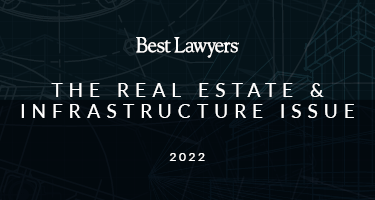Many stagnant foreclosures in the United States have been stuck in the judicial process for more than two years. This article describes how several states have addressed one of the primary legal impediments clogging the pipelines of pending or future foreclosures: lenders’ inability to locate the original mortgage documents. To borrow a phrase from All the President’s Men (Warner Bros. Pictures 1976), the answer to expediting foreclosures with lost documents is to “just . . . follow the money.”
Many of today’s foreclosure actions are commenced not by the original lenders but instead by parties that received a mortgage after a number of transfers during the last housing boom. Because of lenders’ sloppy record-keeping millions of mortgage notes were lost as the mortgage interests were bundled into mortgage-backed securities and, in many cases, tracked only through the Mortgage Electronic Registry System. As a result, borrowers have successfully used the “show me the note” defense to defeat many foreclosures.
Recent case law across the nation, however, demonstrates that the “show me the note” defense to foreclosure actions will not shield defaulting borrowers from liability in all cases. This article looks at the states reporting the highest number of foreclosures—Florida, New Jersey, Illinois, California, and New York—to examine the approaches that courts have used to permit lenders to bring foreclosure actions without the original mortgage note.
One of the primary tools that lenders have used to overcome the problem of missing mortgage documents is UCC § 3-309 of the Uniform Commercial Code (UCC), which governs the enforcement of lost, destroyed, or stolen instruments. UCC § 3-309 provides that a person who is not in possession of the instrument may still enforce the instrument if the person can prove both the terms of the instrument and the person’s right to enforce it.
Although virtually every state has enacted UCC § 3-309, there is substantial divergence among them over one of the three requirements a person must meet to prove the right to enforcement. Under the 1990 version of UCC § 3-309, the party must prove that it “was in possession of the instrument and entitled to enforce it when loss of possession occurred.” UCC § 3-309(a)(i) (1990). A federal district court interpreted this provision to require the party to show that it was in possession of the note at the time it was lost. Dennis Joslin Co. v. Robinson Broad. Corp., 977 F. Supp. 491 (D.D.C. 1997) (holding that under District of Columbia’s version of UCC § 3-309, the assignee of a mortgage could not bring a foreclosure action because it did not possess the original note at the time it was lost and thus was not entitled to enforce the note). UCC § 3-309 was amended in 2002, however, to reject this interpretation. See UCC § 3-309, cmt. 2. The current provision permits enforcement if the person either “(A) was entitled to enforce the instrument when loss of possession occurred; or (B) has directly or indirectly acquired ownership of the instrument from a person who was entitled to enforce the instrument when loss of possession occurred.”
The two other requirements for enforcement are the same in both the 1990 and 2002 versions of UCC § 3-309. The party must prove (1) that it did not lose the note as a result of a transfer or a lawful seizure and (2) that it “cannot reasonably obtain possession of the instrument because the instrument was destroyed, its whereabouts cannot be determined[,] or it is in the wrongful possession of an unknown person or a person that cannot be found or is not amenable to service of process.” UCC § 3-309.
The following discussion illustrates how states have used UCC § 3-309, as well as other statutes, to permit foreclosure in cases in which the original mortgage documents are missing.
Florida
Florida and 15 other states (Alabama, Arkansas, Indiana, Iowa, Kansas, Kentucky, Minnesota, Mississippi, Nebraska, Nevada, New Hampshire, Oklahoma, South Carolina, Tennessee, and Texas) enacted the 2002 amendment to UCC § 3-309. With the exception of New York, which is discussed in greater detail below, the remaining states have retained the 1990 version of UCC § 3-309. It is unclear, however, whether those states would interpret the 1990 language to permit enforcement only if the document had been in the possession of the party at the time it was lost.
A Florida case that predated the 2002 amendments to UCC § 3-309 illustrates this point. In National Loan Investors, L.P. v. Joymar Associates, 767 So. 2d 549, 550 (Fla. Dist. Ct. App. 2000), the plaintiff attempted to foreclose on defendant’s property after receiving the note and mortgage after two previous assignments. The circuit court agreed with the defendant and dismissed the complaint with prejudice because the plaintiff “did not possess the loan documents because [its] assignor . . . never possessed the loan documents. Therefore, [the assignor] had no ability to assign non-possessed documents to [the plaintiff].” A Florida District Court of Appeal reversed, however, concluding that the plaintiff should have been permitted to amend its complaint to allege “a cause of action . . . through proof of an assignable right of enforcement[.]” The court said:
In a mortgage foreclosure action, a lender is required to either present the original promissory note or give a satisfactory explanation for the lender’s failure to present it prior to it being enforced. . . . We see no reason why this right of enforcement cannot be assigned when recognizing such a right would prevent defendants in foreclosure actions from receiving a windfall.
Id. at 551 (citations omitted); see also Lawyers Title Ins. Co., Inc. v. Novastar Mortg., Inc., 862 So. 2d 793, 798 (Fla. Dist. Ct. App. 2003).
Illinois
In Illinois, a judicial foreclosure state, a foreclosure action must comply with the Illinois Mortgage Foreclosure Law, 735 Ill. Comp. Stat. 5/15-1504. This statute permits any “legal holder of the indebtedness, a pledgee, an agent, or a trustee” to foreclose on a defaulting borrower. The term “mortgagee” “goes beyond just note holders to also encompass ‘any person designated or authorized to act on behalf of such holder.'” MERS v. Barnes, 940 N.E.2d 118, 124 (Ill. App. Ct. 2010) (citing 735 Ill. Comp. Stat. 5/ 15-1208); see also Eaton v. Fed. Nat’l Mortg. Ass’n, 969 N.E.2d 1118, 1121 (Mass. 2012) (“mortgagee” refers to “the person or entity then holding the mortgage and also either holding the mortgage note or acting on behalf of the note holder”) (emphasis added). Thus, “[a] plaintiff can maintain a lawsuit although the beneficial ownership of the note is in another person. . . . Illinois does not require that a foreclosure be filed by the owner of the note and mortgage.” Barnes, 940 N.E.2d at 124.
In cases of judicial foreclosure, Illinois’s mortgage foreclosure statute requires the plaintiff to attach copies of the mortgage and note to the foreclosure complaint. In the absence of a copy of the note, a party in Illinois can submit a lost note affidavit to explain the terms of the note. See Cogswell v. CitiFinancial Mortg. Co., Inc., 624 F.3d 395, 402-03 (7th Cir. 2010); Deutsche Bank Nat’l Trust Co. v. Giallombardo, No. 07-CH-34558, 2009 WL 1935918, at *3 (Ill. Cir. Ct. June 16, 2009) (noting that plaintiff’s lost note affidavit did not provide all of the note’s terms, but finding that there was “sufficient demonstration of the terms of the note” to survive a motion to dismiss because the mortgage and adjustable rate rider that plaintiff attached to its complaint explained the note in “sufficient detail”).
A lost note affidavit alone, however, is unlikely to be sufficient to prove the party’s rights to the note under UCC § 3-309, as the Cogswell court explained:
Because neither The Patrick Group [the plaintiff] nor CitiFinancial [its predecessor in interest] could produce an original or even a copy of the note, there remained the possibility that the note was actually held by another who would be entitled to enforce it against the property owners. This concern was reasonable in light of the questions raised by the ambiguous state of the title record.
Cogswell, 624 F.3d at 403-04.
In dictum, the court suggested that it was “theoretically possible to establish ownership of the underlying debt by tracing it through a title search back to the original mortgagee.” Id. at 403 (citing Fin. Freedom v. Kirgis, 877 N.E.2d 24, 45 (Ill. App. Ct. 2007) (allowing a foreclosure action to proceed when the plaintiff produced testimonial evidence, a copy of the mortgage, and evidence that the mortgage was recorded)). That avenue was not available to the plaintiff in Cogswell, however, because there was a gap in the recorded ownership of the mortgage.
California
California is a nonjudicial foreclosure state that does not require a foreclosing party to produce the original note. Gens v. Wachovia Mortg. Corp., No. CV10-01073 JF (HRL), 2010 WL 1924777, at *4 (N.D. Cal. May 12, 2010). Cal. Civ. Code § 2924 governs mortgage foreclosures, and “California courts have held that the Civil Code provisions ‘cover every aspect’ of the foreclosure process, and are ‘intended to be exhaustive[.]'” Chilton v. Fed. Nat’l Mortg. Ass’n, No. 1:09-CV-02187 OWW SMS, 2009 WL 5197869, at *1 (E.D. Cal. Dec. 23, 2009). Specifically, the California Civil Code provides that a “trustee, mortgagee or beneficiary or any of their authorized agents” can conduct the foreclosure process. Cal. Civ. Code § 2924(a)(1). Thus, in Gomes v. Countrywide Home Loans, Inc., 121 Cal. Rptr. 3d 819, 827 (Cal. Ct. App. 2011), the court found that the language in the deed of trust stating that the mortgage registry company had the authority to initiate a foreclosure was valid even if the registry company did not hold a beneficial interest in the deed of trust because the company was designated as nominee for the original lender and its successors and assigns.
New York
In New York, a party can bring a foreclosure action without the note under UCC § 3-804, which requires the party to establish “due proof of his ownership [of the note], the facts which prevent his production [of the note] and its terms.” See also Marrazzo v. Piccolo, 558 N.Y.S.2d 103 (N.Y. App. Div. 1990); Clovine Assocs. Ltd. P’ship v. Kindlund, 621 N.Y.S.2d 606 (N.Y. App. Div. 1995). Further, a “written assignment of the underlying note or the physical delivery of the note prior to the commencement of the foreclosure action is sufficient to transfer the obligation” and thus adequately establishes standing. U.S. Bank N.A. v. Collymore, 890 N.Y.S.2d 578, 580 (N.Y. App. Div. 2009).
U.S. Bank, N.A. v. Collymore suggests that a party can submit an affidavit together with its complaint detailing when the note was physically delivered to it before its loss of possession to establish its right to sue on the note. In that case, however, U.S. Bank ultimately dug its own grave by submitting conflicting evidence of its right to enforce the note, and the court affirmed the lower court’s denial of summary judgment in favor of the bank. Id. Likewise, in Deutsche Bank Nat’l Trust Co. v. Barnett, 931 N.Y.S.2d 630, 632 (N.Y. App. Div. 2011), the New York Supreme Court found that the foreclosing party failed to show its right to enforce the note when the affidavits submitted by the vice-president of the bank’s servicing agent “did not state any factual details concerning when the plaintiff received physical possession of the note and, thus, failed to establish that the plaintiff had physical possession of the note prior to commencing [its] action.” Moreover, in Aurora Loan Services, LLC v. Weisblum, 923 N.Y.S.2d 609, 611 (N.Y. App. Div. 2011), the New York Supreme Court found that the foreclosing party failed to establish standing to foreclose when it “produced no documents establishing an assignment to it of the second note and mortgage” and when its vice-president’s affidavit merely alleged that it became holder of the mortgage by delivery without a written assignment. The court noted that the plaintiff also had to provide factual details “of a physical delivery of both the consolidated note [and modification agreement] . . . prior to the commencement of the action.” Id. at 619; see also In re Agard, 444 B.R. 231, 246 (Bankr. E.D. N.Y. 2011), vacated in part sub nom. Agard v. Select Portfolio Servicing, Inc., No. BR 8-10-77338 (REG), 2012 WL 1043690 (E.D.N.Y. Mar. 28, 2012); Citibank, N.A. v. Eugene Lin, No. 0101699/2007, 2007 WL 2176294, at *1 (N.Y. Sup. Ct. May 24, 2007). Lastly, Bank of New York v. Silverberg, 926 N.Y.S.2d 532, 539 (N.Y. App. Div. 2011), ruled that because plaintiff’s assignor was never the owner of the note and never had physical possession of it, it had no assignable interest in the mortgage in its favor as “nominee.” Therefore, its assignment to plaintiff was void, depriving plaintiff of standing to bring a foreclosure action.
New Jersey
New Jersey did not adopt the 2002 amendment to UCC § 3-309. Thus, unlike in California and Florida, in New Jersey a party may bring its foreclosure claim without the note only if it can prove that it possessed the note before commencement of the action under UCC § 3-309. To accomplish this, a party can submit evidence of the mortgage’s assignment, provided that the assignment is dated and recorded before the complaint is filed and authenticated in some manner. In Wells Fargo Bank, N.A. v. Ford, 15 A.3d 327, 331 (N.J. Super. Ct. App. Div. 2011), the court ruled that the lower court improperly considered a mortgage assignment because it was not “authenticated by an affidavit or certification based on [the bank attorney’s] personal knowledge.”
A New Jersey trial court decision, Bank of America v. Alvarado, No. BER-F-47941-08, 2011 WL 145639 (N.J. Super. Ct. Ch. Div. Jan. 7, 2011), used UCC § 3-309, together with the common law principle of unjust enrichment, to allow the creditor to foreclose on the defaulting defendant. The bank conceded that at the time it commenced its foreclosure action, it did not possess the mortgage note because the original note was lost when sold as part of a group and subsequently transferred to plaintiff’s predecessor. The bank asserted that it was entitled to enforce the note obligation as successor trustee. It submitted a lost note affidavit, alleging that the affidavit “was properly executed by the entity that was in possession and entitled to enforce [the note] when the loss occurred, and that it has the same right to enforce the original Note that [its predecessor] had when the Affidavit was executed.” 2011 WL 145639, at *3. UCC § 3-309 requires a party seeking to enforce a note to show that it was in possession of the note at the time it was lost. The court noted, however, that simply applying UCC § 3-309 “would lead to the result that no entity now exists that can enforce defendant’s defaulted [n]ote obligation.” Recognizing that such a result would produce “a windfall to defendant,” the court ultimately ruled that the plaintiff was entitled to enforce the note under the equitable common law remedy of unjust enrichment. 2011 WL 145639, at *5, *8.
Any Version of the UCC
Regardless of which version of UCC § 3-309(a) a state has enacted, a foreclosing party must also comply with UCC § 3-309(b), under which a court will not enter judgment in favor of a foreclosing party “unless it finds that the person required to pay the [note] is adequately protected against loss that might occur by reason of a claim by another person to enforce the [note].” Indeed, a court will likely find that a party that successfully establishes its right to enforce a note under UCC § 3-309(a) also satisfies UCC § 3-309(b).
This finding, however, would not preclude another party from attempting to enforce the note. Thus, a court may require a prevailing foreclosing party to “intervene and participate” in the defense of a subsequent action brought against the same borrower. Bank of America v. Alvarado notes: “In the unlikely event any . . . action is filed in the future, Bank of America shall be required to intervene and participate in the defense so that defendant shall not be liable twice for the same obligation.” 2011 WL 145639, at *7-8; UCC § 3-309(b) (“[a]dequate protection may be provided by any reasonable means”).
Conclusion
For our economy to fully rebound from the housing crisis, homes need to be put into the hands of people who can afford them. Alternative proofs of lost documentation can unclog foreclosure proceedings and free up the burdened housing. The statutes and case law discussed in this article demonstrate several approaches that courts could employ to permit the use of those alternative proofs.




























